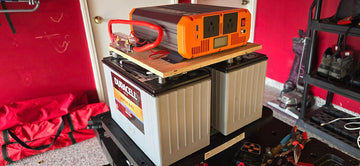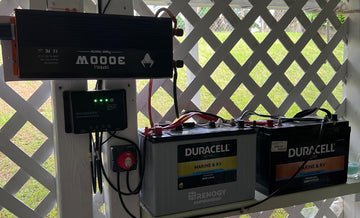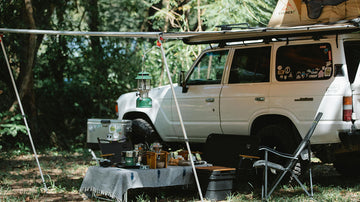With advances in solar panel technology, it is now possible to get more watts of electricity from a single panel than ever before. However, the question arises: can excessive solar panel wattage create problems? In this article, we'll look at the possible effects of excessive power output and how to effectively manage them.
Solar Panel Power Output
The power rating of a solar panel is based on its output capability under ideal conditions and is usually labelled in watts (W). Its power output is affected by a variety of factors such as light intensity, temperature, shadow coverage and panel angle. Under ideal conditions, a solar panel may meet or exceed its power rating. However, in practice, power output often fluctuates.
Solar panels come in a variety of wattages, ranging from small portable panels with a few watts to large utility-grade panels that produce hundreds of watts of power each. The higher the wattage, the more power the panel can generate.
Impact of Excess Power
When the output power from solar panels exceeds the needs of a household or organisation, the system needs to manage this extra power effectively. Excess power may be converted to AC power by an inverter or fed into the grid. In some cases, excess power can lead to overloading the equipment, which may cause circuit breaks or other problems.
Carrying capacity of system components
When setting up a solar system, it is important to ensure that all components are rated to withstand the output of the solar panels. For example, inverters and battery banks have their maximum carrying capacity. Exceeding these ratings can lead to equipment failure or performance degradation. Therefore, it is crucial to understand the technical specifications of these components when buying equipment.
Problems that can arise from too much wattage
- System overload: If the solar panels produce more power than the carrying capacity of the inverter or the grid, it may lead to system overload. This not only affects the normal transmission and use of electricity, but may also cause damage to the equipment and shorten its lifespan.
- Battery overcharging: In a solar energy storage system, if the solar panels generate too much power and cannot be consumed or stored in time, it may lead to battery overcharging. Overcharging can accelerate battery aging, reduce its cycle life, and even cause safety issues.
- Waste of energy: Although solar energy is a renewable energy source, too much wattage is still a waste of energy if it cannot be effectively utilised. This not only violates the original intention of energy saving and emission reduction, but also increases the operating cost of the system.
- Equipment damage: e.g. overloading the inverter may cause it to overheat and even lead to the risk of fire. In addition, prolonged overloading may lead to damage of electrical appliances.
- Loss of system efficiency: Unstable power supply may affect the normal operation of household appliances, resulting in reduced efficiency.
How to Avoid Problems Caused by Excessive Wattage
In order to avoid the problems caused by excessive wattage, it is very important to adopt some strategies:
- Reasonable design of system capacity: At the beginning of solar system design, the number and power of solar panels should be reasonably determined according to the actual demand and environmental conditions. Avoid blindly pursuing high power output which leads to system overload or energy waste.
- Configuration of intelligent control system: By installing an intelligent control system, the output power of the solar panels and the load of the power grid can be monitored in real time. When the solar panels generate too much power, the system can automatically adjust the working mode or deliver excess power to the grid.
- Optimising energy storage solutions: For solar systems that require energy storage, appropriate energy storage devices and strategies should be selected. By optimising the energy storage solution, you can ensure that the power generated by the solar panels is fully utilised, avoiding overcharging of the batteries and wastage of energy.
- Regular maintenance: Regularly inspect and maintain your solar system so that potential problems can be detected early if they arise.
Summary
Proper power management is critical when using solar panels. While excessive power from solar panels can cause problems in some cases, these risks can be effectively mitigated through proper installation, maintenance and use. In promoting the development of the solar industry, we should always pay attention to the safety and economy of the system to ensure that solar power is used efficiently, stably and sustainably.
FAQ
What happens to the excess electricity generated by solar panels?
Excess electricity is typically connected through the grid to a home's electric meter or a business's electric grid and sold back to the electric utility company (depending on local electricity policies and regulations). This process is called ‘net metering’ or ‘power sell-back’. Excess electricity can also be stored in batteries for later use if the power system supports it.
What happens if the solar panel is overloaded?
When solar panels are overloaded, it may cause the inverter to overload, which can manifest itself as overheating, degraded performance, or even damage. In addition, the system may cut off power to protect itself.
Is a higher wattage solar panel better?
Not always. Higher wattage means greater power output, but you need to make sure that it matches your home's power needs. If the demand is exceeded, resulting in too much power that cannot be used efficiently, it will instead result in a waste of resources. Therefore, choosing the right wattage should be based on specific needs and system capacity.
How to choose the wattage of a solar panel?
Choosing the wattage of your solar panels requires consideration of a number of factors, including your electricity needs, available space, budget, sunlight conditions, and whether you intend to sell excess electricity back to the grid or store it in batteries. You can estimate the amount of solar panel wattage you need by calculating your electricity needs, assessing your sunlight conditions and using a solar calculator.
what happens if you add more solar panels than the inverter is rated to handle?
If you add more solar panels than the inverter is rated to handle, the inverter may not be able to handle all the power generated. This may cause the inverter to overload, limiting power output or shutting down the system completely to protect itself from damage. In some cases, you may need to upgrade the inverter to match the added solar panel power.
What happens if the maximum input current for each MPPT (Maximum Power Point Tracker) is exceeded?
MPPT is a technique used to optimise the power output of solar panels. Each MPPT has its own maximum input current limit. If this limit is exceeded, the MPPT may not be able to accurately track the maximum power point of the solar panel, resulting in reduced or erratic power output. This may affect the overall performance and efficiency of the system.
How does a solar charge controller handle excess power?
The primary role of a solar charge controller (typically used in off-grid systems) is to regulate the flow of power from the solar panels to the batteries. If the batteries are already fully charged and there is no other load on the system to consume the excess power, the solar charge controller will typically shut down the connection between the solar panels and the batteries to prevent the batteries from overcharging. Some advanced charge controllers may also include the ability to transfer excess power to other loads (such as pumps, heaters, etc.), but this depends on the specific model and features of the charge controller.

















